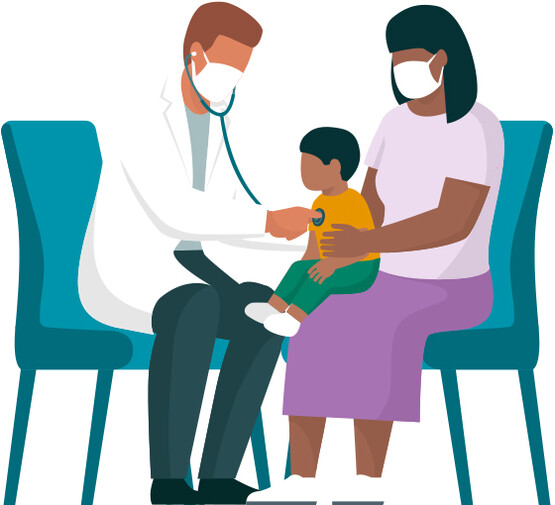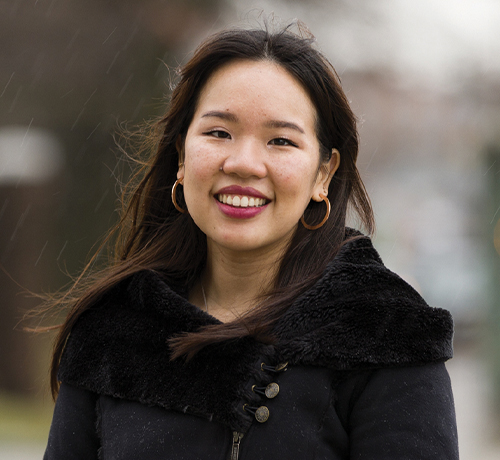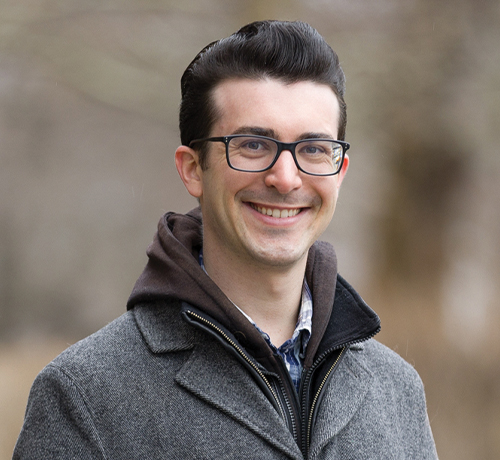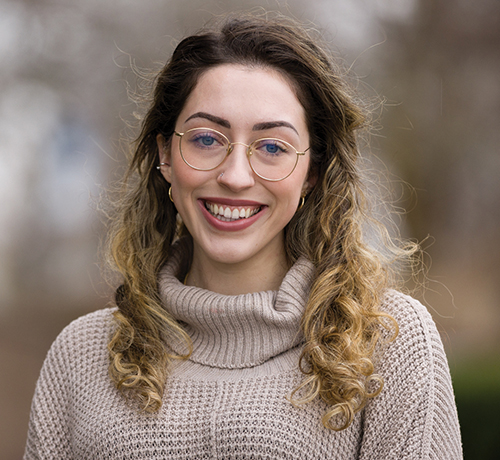Nicole Turturro, Class of 2022, was thrilled. It was the fall of 2019, and Einstein had just announced that it was partnering with the City University of New York’s Graduate School of Public Health & Health Policy (CUNY SPH) to offer medical students the chance to earn a master of public health (M.P.H.) degree along with a doctor of medicine degree. She wanted to one day combine a clinical practice in internal medicine with community work in preventive health.
It seemed to be a perfect fit. But there was just one problem.
The combined M.D./M.P.H. program wasn’t open to third-year students like her; it was set to kick off with the Class of 2023. To obtain an M.P.H., medical students typically start their classwork during the summer after their first year of medical school and devote a gap year to it after their third year. But Ms. Turturro would not be deterred. She, along with two of her third-year classmates—Jennifer Luk and Samuel Nemiroff—made an appeal to their faculty advisers.
Fortunately for the three, Einstein and CUNY SPH agreed to condense the requirements for the M.P.H. degree into a single year for them. “It was a lot of work,” Ms. Luk says. “But was it worthwhile? Absolutely.”
In May those three students will be the first to complete the combined M.D./ M.P.H. program, earning their doctor of medicine degrees from Einstein after having received their M.P.H. degrees from CUNY SPH in 2021. “Getting an M.P.H. was one of the best decisions of my life,” Mr. Nemiroff says.
Jill Raufman, M.P.H., M.S., Einstein’s M.D./M.P.H. program administrator and associate director of Einstein’s Global Health Center, says she had long wondered how Einstein could provide its students with additional training in community and population health.
While she was earning her own M.P.H. degree, a group of students asked a fellow classmate, a pediatrician, why she was devoting the time, money, and effort to earning the additional degree. “She said, ‘I get all these really sick babies coming to me for care, and I want to be a part of the prevention side of things,’” Ms. Raufman recalls. “That’s the essence of public health.”

As part of the planning for a possible M.D./M.P.H. program, Ms. Raufman surveyed Einstein students in 2018 about their interest in the added degree. “The response was overwhelmingly positive,” she says.
In September 2019, she reached out to CUNY SPH, her alma mater, which, according to U.S. News & World Report, has New York’s top M.P.H. program among public institutions. Einstein already had a relationship with CUNY through its Centers for AIDS Research program. Other pluses included CUNY’s easy access to Einstein’s campus by subway and its affordable cost for New York State residents. “With everyone committed to making the collaboration happen, it got off the ground quickly,” she says.
The combined Einstein–CUNY SPH M.D./M.P.H. degree program offers four tracks from which to choose: environmental and occupational health sciences; epidemiology and biostatistics; health policy and management; and public health nutrition.
All students pursue the same core curriculum, covering, among other topics, economics, law, management, policy, and research methods. Every student also does fieldwork with a community organization. Earning a separate M.P.H. degree typically takes two years, but the structure of the Einstein–CUNY SPH program allows students to complete both their M.D. and M.P.H. degrees in five years.
“Healthcare requires physicians to treat patients from both the individual and the community perspective,” notes Louis M. Weiss, M.D., M.P.H., co-director of the Einstein Global Health Center and a key driver of the launch of Einstein’s M.P.H. program. “The combined M.D. and M.P.H. degrees provide healthcare professionals with a much greater understanding of health issues and better tools to understand and prevent human diseases.”
Medical students in the M.P.H. program are finding that what they learn can be applied to rural and urban populations, globally and here in the Bronx. During her first summer in the M.P.H. program, current third-year medical student Linda Forrester took part virtually in a Ugandan community health project on diabetes. Closer to home, Destiney Kirby—another current third-year—worked with the Bronx Health Opportunities Partnership–Einstein (Bronx HOPE), a pipeline program that helps students from underrepresented groups pursue careers in the health professions.
“As a Black, low-income female I experienced how the healthcare system can negatively impact a community,” Ms. Kirby says. She sees education as a way to change that. “My dream is to work part-time as a physician and open up a café and bookstore that runs public health initiatives on issues such as asthma interventions, reproductive justice, and sexual education.”
Ms. Forrester, who intends to become a family medicine physician, says she would like to work with community organizations on housing policies, nutrition, and the environment. Eventually she’d like to contribute to public health in her native country of Jamaica. “I would like to make preventive care accessible, particularly to people in rural areas who often don’t get care until their medical conditions are advanced.”
Thanks to the generosity of an Einstein alumni couple, Pilar Vargas, M.D. ’77, Ph.D., and Sten H. Vermund, M.D. ’77, Ph.D., a scholarship fund has been set up for Einstein M.D./M.P.H. students. The gift will pay $3,000 in tuition costs for each of six students annually as well as some travel expenses for fieldwork. For more information, email: development@einsteinmed.edu.

Throughout the pandemic, Ms. Luk has been dedicated to helping people in the Bronx. When shortages of essential medical supplies occurred in March 2020, she worked daily with students and community leaders to manufacture thousands of face shields and masks for local hospitals. She has continued her work in the Bronx with the group she connected with during her M.P.H. fieldwork, CONVINCE USA, creating communication tools and strategies to increase the public’s trust in healthcare workers and vaccines.
Ms. Luk would like to specialize in emergency medicine because, she says, “it’s a snapshot of what people across the spectrum are facing in their everyday lives. It ties beautifully to public health because you can see what’s going on and take steps to address it.”

Working on an M.P.H. degree affords students the opportunity “to sink their teeth into a subject, design a study from scratch, and execute it,” Mr. Nemiroff says. For his M.P.H. capstone project, he researched what motivates obese children and their caretakers to change their behavior to make healthier choices. “Adolescence is the ideal time to intervene, before they develop diabetes, hypertension, and other obesity-related conditions,” he says.
He appreciates that his M.P.H. coursework gave him the tools he needs to advocate for programs that improve dietary health. For his fieldwork, he interned at Brooklyn Borough Hall as a Food Policy Fellow, working with local medical schools to incorporate more-effective nutrition education in their curricula and encouraging hospitals to provide healthier, plant-based meals to admitted patients.

Passionate about improving access to healthy food, Ms. Turturro has been an active member of an Einstein student group, Food Justice and Medicine, that is addressing food insecurity in the Bronx. For her M.P.H. fieldwork, Ms. Turturro worked with the CUNY Urban Food Policy Institute to review policies affecting food insecurity and nutrition across 31 counties in New York, New Jersey, and Connecticut.
She used her analysis to pinpoint where these counties could work together to help underserved populations access more local vegetables and fruit. “It was the first time I put myself in the shoes of a policymaker and thought about the impact of decisions on large swaths of the population,” Ms. Turturro says. “My M.P.H. will provide me with the tools to examine community problems and come up with healthy solutions.”